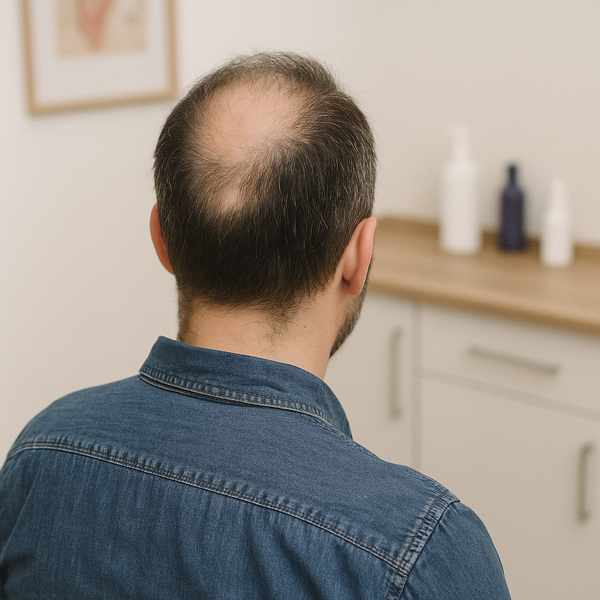
So what’s the connection between weight loss and hair loss, and how can you manage both successfully?
Understanding why this happens and how to protect your hair can help you reach your goals without compromising your confidence.
What Causes Hair Loss After Losing Weight?
Hair loss during weight loss is usually a result of physical stress or nutritional deficiencies.
Common causes include:
- Lack of protein, iron, or vitamins
- Extreme calorie restriction
- Hormonal imbalances
- The body reacts to sudden changes
What Type of Hair Loss Is It?
Most hair loss related to weight loss is called telogen effluvium.
Key facts:
- There’s a delay between cause and effect
- No bald patches, just thinning
- Hair usually grows back with time
Nutrients Critical for Hair Health
If you're trying to lose weight, be sure not to miss these nutrients:
- Essential for hair structure and growth
- Carries oxygen to hair follicles
- Biotin and other B vitamins
- Supports hair tissue repair and growth
- Vitamin D
Skipping click here meals or using crash diets can easily lead to deficiencies that trigger hair loss.
Yes — With the Right Strategy
You don’t have to choose between losing weight and keeping your hair.
Tips include:
- Aim for 1–2 pounds per week
- Eat a nutrient-rich diet
- Especially during calorie restriction
- Manage stress and sleep
- Hair needs water, too
What to Do If You’re Already Losing Hair
If you notice excessive shedding:
- It’s likely temporary
- Get bloodwork done
- Replenish what’s missing
- Avoid tight hairstyles and harsh products
- Be patient
Getting Expert Help for Hair Loss
A doctor or dermatologist can help identify underlying issues like:
- Thyroid dysfunction
- Can trigger more permanent forms of hair loss
- Need professional correction
Final Thoughts
By understanding what’s happening inside your body, you can take steps to protect your health — and your hair.
Prioritize nourishment, patience, and consistency, and your body will thank you — from head to toe.